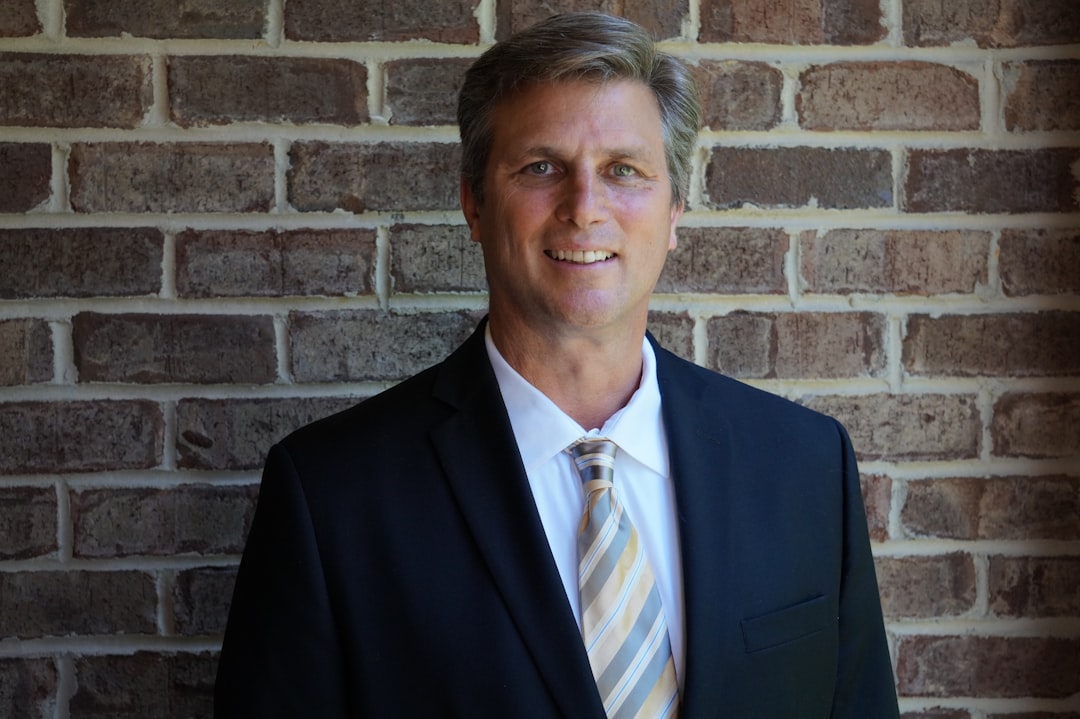What are the police ranks in order? This is a question that is frequently asked by the public and potential police applicants.
The police force is a critical part of our society, ensuring law and order while maintaining peace and security.
The hierarchical structure of the police force allows for a smooth flow of command and control.
While many people are familiar with the term ‘police officer,’ there are several different ranks within this profession, each carrying its unique responsibilities and duties.
This article will provide a comprehensive overview of some of these ranks: Police Officer, Police Detective, and Police Corporal.
Police Officer
Police Officer is the entry-level rank in the police force. Their primary duty is to maintain law and order, protect members of the public and their properties, prevent crime, and improve the quality of life for all citizens.
They patrol assigned areas, respond to calls, enforce laws, make arrests, issue citations, and occasionally testify in court cases.
Despite being the lowest rank in the force, police officers form the backbone of any police department. They are typically the first responders and the ones citizens interact with most frequently.
Police Detective
One step above the standard police officer is the Police Detective. Detectives are responsible for investigating crimes and gathering facts for criminal cases.
They conduct interviews, examine records, observe the activities of suspects, and participate in raids or arrests. Detectives usually specialize in one type of crime such as homicide, narcotics, or fraud.
They work closely with police officers but are distinguished by their focus on investigation as opposed to patrolling.
Becoming a detective often requires experience as a police officer, advanced training, and a demonstrated aptitude for investigative work.
Police Corporal
The Police Corporal is a rank above Police Officer and below Sergeant. This position serves as the first line of supervision within the police department.
The corporal is often responsible for supervising a small team of police officers, providing them with guidance and support.
They also perform many of the same duties as a police officer but have additional responsibilities. This may include administrative tasks, reviewing reports, and overseeing the work of junior officers.
To be promoted to a corporal, an officer generally needs to have several years of experience and demonstrate leadership skills.
Police Sergeant
The Police Sergeant is the next rank above corporal and serves as a key link between the police officers and the command staff.
Sergeants have more administrative duties compared to corporals, but they also work in the field supervising patrol officers or detectives.
Their responsibilities include planning and directing operations, supervising and training junior officers, reviewing reports, and sometimes handling public relations.
They are expected to lead by example and ensure that the officers under their supervision are performing their duties correctly and efficiently.
Police Lieutenant
Above the rank of sergeant is the Police Lieutenant. Lieutenants are typically responsible for overseeing several sergeants, along with their respective officers and detectives.
They can also be in charge of special functions such as training, logistics, internal affairs, and community relations.
Lieutenants play a critical role in decision-making and often serve as incident commanders in emergencies.
They report directly to a captain or higher-ranking officers. Promotion to lieutenant usually requires previous experience as a sergeant and additional training and education.
Police Captain
At the top of the middle management chain in a police department is the Police Captain.
Captains are responsible for a district or a major division within the police department such as detective services, patrol, or administration.
They set the operational strategy and goals for their area, manage budgets, oversee personnel decisions, and coordinate with other departments or agencies.
In some departments, captains serve as the deputy chief. To reach this rank, officers typically need many years of law enforcement experience and a strong record of leadership.
Deputy Chief
A Deputy Chief of Police is the second highest rank in most police departments and reports directly to the Chief of Police.
They assist the chief by overseeing the daily operations of the department and stepping in when the chief is unavailable.
This role involves managing various divisions within the department, developing policies and procedures, coordinating with other law enforcement agencies, and addressing community concerns.
Many deputy chiefs are involved in strategic planning for crime prevention and response. They usually have substantial experience in law enforcement and proven leadership abilities.
Assistant Chief
In some police departments, the rank above Deputy Chief is the Assistant Chief of Police.
They are typically responsible for major areas of the department’s operations such as patrol, investigation, administration, or support services.
Assistant chiefs often participate in the development of the department’s strategic plan and play a crucial role in implementing it.
They may also represent the department in interactions with city officials, community organizations, and the media.
The position requires extensive experience in law enforcement and a strong understanding of police operations and administration.
Chief of Police
The Chief of Police is the highest-ranking officer in a police department. They are responsible for all aspects of the department’s operations and performance.
This includes setting the department’s vision and strategy, managing personnel, overseeing budgets, and ensuring that the department responds effectively to crime and public safety issues.
The chief represents the department to the public, elected officials, and other agencies. They are expected to build strong relationships with the community and lead efforts to improve public trust and confidence in the police.
Chiefs are typically appointed by the city manager or elected officials and they often have many years of law enforcement experience and advanced education in criminal justice or related fields.
Police Commissioner
A Police Commissioner is a senior official in many law enforcement agencies. The role and responsibilities of a police commissioner can vary widely depending on the specific context.
In some cities, the Police Commissioner is the highest-ranking official in the police department, similar to a Chief of Police.
They are responsible for setting policy, overseeing the budget, and managing the overall operations of the department.
In other jurisdictions, the Police Commissioner is a civilian who oversees the police department but does not manage its day-to-day operations.
This might involve setting strategic priorities, developing policies, monitoring performance, and handling complaints against the police. The Police Commissioner often reports to the city’s mayor or other elected officials.
Sheriff’s Department
The Sheriff’s Department is another type of law enforcement agency, typically at the county level in the United States.
The head of the department is the Sheriff, an elected official who serves as the chief law enforcement officer in the county.
The Sheriff’s responsibilities are similar to those of a police chief and may include enforcing laws, maintaining jail facilities, serving court documents, and providing security for courts.
The Sheriff’s Department is organized into various ranks, similar to a police department. However, the specific titles and responsibilities can vary from one jurisdiction to another.
Common ranks include Deputy Sheriff, Sergeant, Lieutenant, Captain, and Undersheriff. The Undersheriff is typically the second-in-command and assists the Sheriff in managing the department.
Police Dispatchers
Although 911 police dispatchers aren’t part of the ranking order within a police agency, they play such a critical role that I had to mention them.
Police Dispatchers have their own Hierarchy from entry level dispatcher to supervision.
Many law enforcement agencies employ civilians to run and operate the dispatch division, but some agencies like Detroit Police Department have sworn personnel who run the unit.
Police Records
Similar to police dispatchers, the records unit is a very important part of any police agency. The records division isn’t part of the ranking order within the police department’s ranking structure, but I thought it was important to mention them.
In many agencies, the records division is usually headed by a sworn police officer like a Captain or a Lieutenant.
How to climb the police ranks
Climbing the police ranks involves several key steps, according to various sources:
Education: Earning a degree, preferably in administration or a related field, can make you more attractive as a candidate for promotion. A four-year degree can particularly boost your salary and help you move to a higher rank.
Experience: Climbing the ranks often requires gaining experience in various roles. Don’t turn down lateral moves that could broaden your skill set.
Promotional Exams: Many departments require officers to take promotional exams as they advance in their careers. These tests often cover laws, procedures, and scenarios that officers might encounter in their new roles.
Leadership Skills: As you move up the ranks, you’ll take on more leadership responsibilities. Developing strong leadership skills can help you stand out as a candidate for promotion.
Continuous Learning: The field of law enforcement is always evolving. Officers who regularly pursue continuing education opportunities can stay up-to-date on the latest best practices.
Networking: Building strong relationships with colleagues and superiors can also be beneficial. These connections can provide guidance and support as you navigate your career.
Remember, the timeline for advancement can vary. Some officers might be ready for a supervisory role five to ten years into their career.
Finally, keep in mind that each police department has its own specific requirements for promotion, so it’s important to understand these as you plan your career path.
3 Reasons Why Police Hierarchy Matters
Police ranks in order, from lowest to highest, typically include: Police Officer or Detective, Police Corporal,
Here are three reasons why this hierarchy matters:
Efficient Decision-Making:
A clear hierarchy allows for efficient decision-making within the department. It ensures that each officer knows their responsibilities and who they report to.
This structure is crucial in high-pressure situations where quick and decisive action is needed.
Accountability and Supervision:
The hierarchical structure holds each rank accountable for their actions. Higher-ranked officers supervise those below them, ensuring adherence to laws, regulations, and department policies.
This accountability helps maintain professional standards and public trust.
Career Progression:
The hierarchy provides a clear pathway for career advancement. Officers can work their way up the ranks, taking on more responsibilities and leadership roles.
This structure can motivate officers to gain the skills and experience necessary for promotion.
Frequently Asked Questions
What are the ranks in the police lowest to highest?
The ranks in the police, from lowest to highest, generally follow this order:
- Police Officer/Police Detective
- Police Corporal
- Police Sergeant
- Police Lieutenant
- Police Captain
- Police Commander
- Deputy Chief of Police
- Assistant Chief of Police
- Chief of Police
Some departments may have additional ranks or use different titles, but this gives a general idea of the hierarchy.
It’s also worth noting that in some cases, a detective position might not be considered a rank, but rather a job assignment.
What are US police ranks in order?
The typical order of ranks in U.S. police departments is as follows:
- Police Officer/Police Detective
- Police Corporal
- Police Sergeant
- Police Lieutenant
- Police Captain
- Police Commander
- Deputy Chief of Police
- Assistant Chief of Police
- Chief of Police
Is FBI agent higher rank than police?
FBI Agents and police officers are part of different organizations with different jurisdictions. The FBI is a federal agency, and its agents have enforcement powers across the entire United States.
In contrast, police officers usually have jurisdiction within a specific city or county. While an FBI Agent might work on larger-scale or federal investigations, it’s not accurate to say that they’re “higher rank” than police officers. They have different roles and responsibilities.
Do police have a hierarchy?
Yes, police departments typically have a hierarchical structure. This hierarchy enables efficient communication and decision-making, ensures accountability, and provides a clear pathway for career progression. The specific ranks and responsibilities can vary among different departments.
What are the 4 levels of law enforcement?
In the United States, law enforcement is typically divided into four levels: local, county, state, and federal.
Local agencies include city and town police departments. County agencies are usually headed by a Sheriff. State agencies include the State Police or Highway Patrol.
Federal agencies include organizations like the Federal Bureau of Investigation (FBI), the Drug Enforcement Administration (DEA), and the Bureau of Alcohol, Tobacco, Firearms, and Explosives (ATF).
What is the chain of police?
The chain of command in a police department refers to the hierarchy of authority and responsibility. From lowest to highest, it typically includes the following ranks:
- Police Officer/Police Detective
- Police Corporal
- Police Sergeant
- Police Lieutenant
- Police Captain
- Police Commander
- Deputy Chief of Police
- Assistant Chief of Police
- Chief of Police
Each rank reports to the one above it, and the Chief of Police reports to the city’s elected officials or a city manager.






